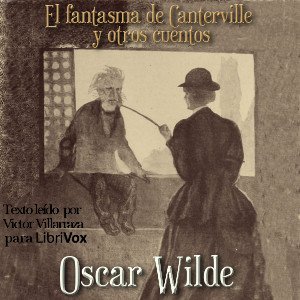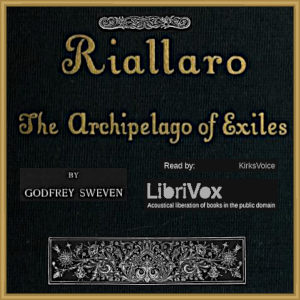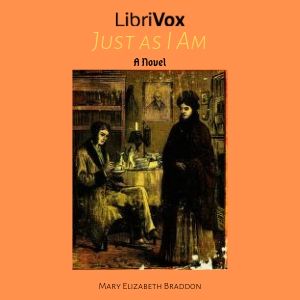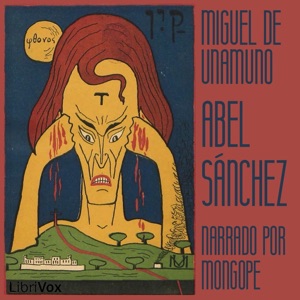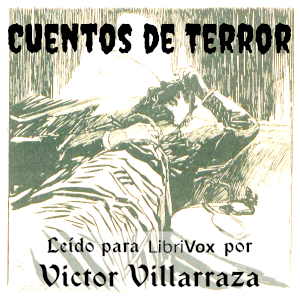Armando Duval, un joven de la alta sociedad parisiense, se enamora perdidamente de Margarita Gautier, reconocida cortesana, quien corresponde sinceramente a este sentimiento. Olvidándose de esas circunstancias que les rodean, Armando y Margarita se entregan por completo a ese amor, sin importarles el escándalo que esto genere. (Summary by Phileas Fogg)
28 episodes
An historical novel by Sir Walter Scott, part of the Tales of My Landlord series, published anonymously in 1819. Based on a true story, it is set in south-east Scotland and (in this edition) in the reign of Queen Anne, after the 1707 Acts of Union which joined Scotland and England. It tells of a tragic love affair between young Lucy Ashton and Edgar Ravenswood, her family's enemy. Lady Ashton sets out to end their engagement and make Lucy marry a man better placed politically. - Summary by Gillian Hendrie
36 episodes
One of the most heart-breaking of all World War I novels, this family epic was written in the midst of the War itself, and shows the intense emotion generated in ordinary lives by that tragedy. May Sinclair astonishingly weaves multiple themes into her narrative, seamlessly drawing from the great movements of her day: suffrage, sexual liberation, artistic revolt, war, and pacifism. Her most powerful metaphor throughout the novel is that of the Vortex: the dangerously irresistible force of human masses, how to resist it and (much more difficult) how to participate in it without losing one’s individual autonomy. - Summary by Expatriate
25 episodes

Der Erzähler lernt auf einer Schiffsreise von Kalkutta nach Europa im Jahre 1912 einen Arzt kennen, der sich auf dem Schiff versteckt hat. Sie kommen ins Gespräch. Der Arzt hat mehrere Jahre in den Tropen gearbeitet. Eines Tages erscheint in seiner Praxis eine hochmütig auftretende weiße Frau, die eine Abtreibung durchführen lassen will. Diese soll geheim bleiben. Sie bietet ihm deshalb für die Abtreibung eine hohe Summe Geldes an. Der Arzt ist hierzu jedoch nicht bereit. Da er sich von ihrer kalten Hochmütigkeit angezogen fühlt, fordert er statt des Geldes geschlechtliche Handlungen ein. Sie verlässt empört den Raum.Zunächst ist er wie erstarrt. Ähnlich einem besessenen Amokläufer eilt er nach einiger Zeit der Frau nach. Sie ist jedoch verschwunden. Er macht sich auf die Suche nach ihr und findet sie schließlich. Mittlerweile ist ihm bewusst, dass sie gezwungen ist, den Schwangerschaftsabbruch unfachmännisch durchführen zu lassen, wobei sie sterben kann. Wird es ihm gelingen, sie hiervon abzubringen? - Summary by Hawe
18 episodes

First published as a serial in Fraser's Magazine in 1844 as The Luck of Barry Lyndon, The Memoirs of Barry Lyndon, Esq is a picaresque novel, narrated (occasionally charmingly, always unreliably) by a member of the 18th-century Irish gentry. Redmond Barry, later Barry Lyndon, describes his rise to - and inevitable fall from - the top of the English aristocracy. Romantic, military and political intrigue, as well as satire and pathos, follow. Editorial notes, courtesy of Thackeray's fictitious alter ego, G. S. FitzBoodle, interject further levels of irony, humour and detachment.Thackeray, who based the novel in part on the life and exploits of the Anglo-Irish rake and fortune-hunter Andrew Robinson Stoney, among other historical sources, significantly revised and reissued the book in 1856 under its current title.Its unreliable, morally dubious narrator, metafictional editor, and multiple layers of interpretive possibility make it a fascinating precursor to the modern novel, while Thackeray's characteristic interest in the specifics of 18th-century life ensures a rich and engaging backdrop.In 1975, Stanley Kubrick adapted the book for his film Barry Lyndon, since widely regarded as one of the finest films ever made.This audiobook was read from a 1902 edition edited by Walter Jerrold, who provides a brief introduction. - Summary by mb
22 episodes
Oscar Fingal O'Flahertie Wills Wilde, escritor, poeta y dramaturgo irlandés. Wilde está considerado como uno de los dramaturgos más destacados del Londres victoriano tardío; además, fue una celebridad de la época debido a su puntilloso y gran ingenio. - Summary by Phileas Fogg
17 episodes
This 1922 novel by F. Scott Fitzgerald chronicles the life of Anthony Patch, the only heir of millionaire Adam Patch, his grandfather. Anthony is young, handsome and well-educated. He marries the ravishingly beautiful Gloria, and together they plan for the day that Anthony receives his inheritance. But what will they make of themselves in the meantime as they look forward to a life of wealth and idle leisure? What is the role of purpose in a well-lived life? Fitzgerald explores these questions in a book that is at the same time humorous, sad and tragic. (Mark Nelson)
21 episodes

Published in 1812, “The Absentee” by Maria Edgeworth examines social injustice in 19th-century Britain. At that time, the management of many Irish estates suffered from the absenteeism of their Anglo-Irish landlords. We meet Lord and Lady Clonbrony. Lord Clonbrony struggles with debt, while Lady Clonbrony tries to shed her Irish connections and earn status in London’s high society (known as “the ton.”) Meanwhile, their son, Lord Colambre, is wary of the entanglements of that society and escapes to the family estate in Ireland, where he discovers the abuses that have arisen in the family’s absence.Maria Edgeworth was a pioneer of realism in fiction, and one of the most successful and popular novelists of her time. She offered satirical portraits of society manners and sympathetic treatment of regional life. Her work won admiration from authors such as Jane Austen and Sir Walter Scott. “The Absentee” is named in the reference list “1001 Books You Must Read Before You Die.” - Summary by Bruce Pirie
17 episodes
El crimen del padre Amaro (título original portugués O Crime do Padre Amaro: cenas da vida devota) es una novela del escritor portugués Eça de Queirós publicada en 1875, considerada la primera novela portuguesa del realismo. Causó una gran polémica en el momento de su publicación por su denuncia de la hipocresía social y religiosa. La traducción de Valle-Inclán se sitúa entre 1901 y 1902. La editorial Maucci, muy interesada en la obra de Eça de Queiroz, negoció en Lisboa y cerró el acuerdo para la publicación de esta obra. Anteriormente, había aparecido traducida deficientemente de forma incompleta, sesgada y/o manipulada bajo llamativos títulos: El crimen de un clérigo (1882) y El padre Amaro. Segunda parte del crimen de un clérigo (1884). La primera traducción completa, y oficial, es la de Valle-Inclán, en 1901-1902. - Summary by Phileas Fogg
25 episodes
Novela de suspense, misterio...terror. Nos lleva a reflexionar sobre las dos caras de la vida y también del ser humano: El bien y el mal.
El doctor Enrique Jekyll crea una fórmula, un bebedizo, que al ser ingerida le metamorfosea en el ser más cruel y perverso imaginable: Eduardo Hyde. - Summary by Montse González.
11 episodes
The Protestant Sir John Chester and the Catholic Geoffrey Haredale have been feuding for years. In "Romeo and Juliet" fashion, Chester's son and Haredale's niece wish to marry, but their relatives oppose the union. A tale of love and intrigue set against the historical events of 1780, when an anti-Catholic mob caused more damage to London than had ever been seen before. And the simple young man Barnaby who becomes caught up in events he does not quite understand. (Brad Filippone)
83 episodes
Published in 1908, this is the story of two small families and the agreeable couple who help them. The heartfelt Norths, though clouded by disabilities, maintain the joy of life while struggling through sadness and loss. Their neighbours, the Austins, live comfortably if without much in the way of shared interest. As Eloise Wynne approaches to “bless” the Norths with her amiable fiancé, Doctor Allan Conrad, the two offspring in each family discover a hidden deception and how each parent, that they had grown up without, had met their fatal ends. - Summary by Daryl Wor
24 episodes
Inexplicably, young Gregor Samsa wakes up one morning having turned into a large bug. The story follows how him and his family deal with the absurdity of such a situation, leading the reader on a bizarre, dreamlike exploration of family, alienation, and the identity. - Summary by David Derida
3 episodes
Considered Forster's masterpiece and one of the best books of the 20th century, Howards End tackles social conventions of the Edwardian era. The story focuses on three families in England at the beginning of the 20th century: the Wilcoxes, rich capitalists with a fortune made in the colonies; the half-German Schlegel siblings (Margaret, Helen, and Tibby), whose cultural pursuits have much in common with the Bloomsbury Group; and the Basts, an impoverished young couple from a lower-class background. The idealistic, intelligent Schlegel sisters seek to help the struggling Basts and to rid the Wilcoxes of some of their deep-seated social and economic prejudices. - Summary by Lynne Thompson
44 episodes
Published in 1924, Precious Bane is a novel by Mary Webb (1881 - 1927) which touches on ambition, prejudice and hatred but also on the power of love. Prue Sarn is a farm girl in rural Shropshire during the period of the Napoleonic Wars and is viewed with suspicion by the local community because of having been born with a harelip. Her ambitious and domineering brother betrays her and her superstitious neighbours accuse her of witchcraft. An itinerant weaver Kester Woodseaves, makes his living by weaving for the local people in their homes. Like Prue, he loves the natural world and comes to recognises Prue's inner strength and beauty. ( Noel Badrian)
33 episodes
Im späten Mittelalter wird der Adlige Herzog Wilhelm von Breysach heimtückisch durch einen Pfeil ermordet. Die Nachforschungen ergeben, dass der kunstvoll gefertigte Pfeil für den Bruder des Ermordeten, Graf Jakob den Rotbart, geschmiedet worden ist. Sollte er tatsächlich aus Machtgier seinen eigenen Bruder ermordet haben? Graf Jakob leugnet und gibt als Alibi an, dass er in der Mordnacht bei der schönen und unbescholtenen Witwe Frau Wittib Littegarde von Auerstein gewesen sei -- eine Anschuldigung, die jene edle Frau in höchste Bedrängnis bringt... Die Aufklärung dieses Mordfalls in einer Zeit voller Intrigen und politischer Ränke macht den Text Kleists zu einem Vorläufer der Kriminalerzählung. Erst im 20. Jahrhundert setzte ein verstärktes Interesse für diese Erzählung ein, die nach ihrer Entstehung lange Zeit im Schatten von Kleists übrigem Schaffen stand. - Summary by Boris
4 episodes

The "Ideal Husband" of the title is Sir Robert Chiltern, with his equally upright wife Lady Chiltern. He has never committed a crime, never had a "past" and never bowed to corruption or influence, or so she thinks... The disreputable Mrs Cheveley is about to appear and try her hand at both politics and blackmail - can the Chilterns come through the encounter with both public and private honour intact? And what about Miss Mabel Chiltern's roguish beau, Lord Goring? What does he have to do with all of this?
Oscar Wilde's witty comedy of manners, trust and politics shows human nature in a typically merciless light. The main themes are blackmail, political corruption and the uses and abuses of power both in politics and in private life. Quote from the play: “It takes great deal of courage to see the world in all its tainted glory, and still to love it.” (Summary by Beth Thomas)
Cast List: The Earl of Caversham: Alan MapstoneVicount Goring: Rob MarlandSir Robert Chiltern: Tomas PeterLady Chiltern: Beth ThomasMrs Cheveley: Eva DavisMiss Mabel Chiltern: Leanne YauLady Markby: TJ BurnsLady Basildon: FoonMrs Marchmont: Hope KVicomte de Nanjac: KurtMr Montford/Harold: DrPGouldMason: Zames CurranPhipps: NemoNarration read by: MichaelMaggsAudio edited by: Rob Marland
4 episodes

La vida es sueño es una obra de teatro de Pedro Calderón de la Barca estrenada en 1635 y perteneciente al movimiento literario barroco. El tema central es la libertad del ser humano para configurar su vida, sin dejarse llevar por un supuesto destino.
El personaje principal es Segismundo, hijo del Rey Basilio, pero que a pesar de su gran ascendencia no ha gozado de los placeres que le corresponden, pues antes que naciera su padre tenía la creencia de que la naturaleza auguraba para su hijo un mal futuro como rey déspota y mucha muerte al pueblo que le tocaría gobernar, motivo por el cual nunca fue criado como príncipe, mas bien fue, desde su nacimiento, apartado de todo contacto humano y encerrado en una torre a la que nadie mas que las personas encargadas de su cuidado y educación podían acceder. Así pasaron los años hasta que llegó la hora de decidir quien sucederá el trono del Rey Basilio, en esas circunstancias, llegan al pueblo dos personajes, Rosaura y Clarín, en busca de una venganza amorosa la primera y como acompañante el segundo, y sólo a su llegada conocen a Segismundo, para luego entrecruzar sus historias dentro del Palacio al que Rosaura y Clarín tienen acceso con la finalidad de impedir el matrimonio de dos primos, Estrella y Astolfo, que ansían hacerse con el trono de su tío. La historia se desarrolla de modo tal que Segismundo descubre cual ha sido su cuna, sin embargo en el trayecto ocurren circunstancias que le hacen creer que su vida es un sueño, producto del engaño de su propio padre, quien le hizo creer que todo el tiempo que estuvo recluido en la torre fue solo eso: un sueño.
17 episodes
El profesor Lidenbrock, que une a su condición de verdadero sabio una terquedad sin límites, descifra un viejo pergamino devolviendo pacientemente su sentido a los incomprensibles signos que en él se contienen. ¡Extraordinarios peligros de la lectura! El descifrado de aquel texto arrastrará inevitablemente al propio Lidenbrok, a su joven sobrino Axel y al valeroso cazador Hans Bjelke hasta el mismísimo centro de la Tierra, poblado de animales antediluvianos, tempestades terribles y otros riesgos sin mayor importancia. - (Phileas Fogg)
45 episodes

Olive Schreiner was a South African writer and intellectual born in 1855 to missionary parents in the Eastern Cape. She was one of the earliest campaigners for women's rights. She was also very critical of British Imperialism in her homeland and particularly of their racist policies against the Boers, Jews, Indians and the Black races of South Africa. As a result of her public support for the Boers, all her manuscripts and her house were burned during the Anglo-Boer War and she was interned in a concentration camp for several years.
Her first novel "The Story of an African Farm" published in 1883 became a best seller, and is considered to be one of the first ever "feminist" novels. The success of the book also made her the first internationally successful South African novelist.
"Dreams", her second book was published in 1891. It is a collection of eleven allegorical stories. Many of them read very like prose poems. The book was very well received at the time of publication and went through many editions by the time she died in 1920. Like her first book it was viewed as a feminist work and became especially treasured by those Suffragettes who spent time in prison.
A subsequent book of hers, "Woman and Labour" published in 1911 was one of the most important and influential feminist works of the time, so much so that it is often cited as the "Bible" of the Women's Movement.
- Summary by Noel Badrian
9 episodes
Like the Asphodel, a plant which grows far away from England, Daphne grows far away from home. In her first chance of freedom, at the age of almost 17, she finds an opportunity to forget for a while... Forget that her father, the renowned Sir Vernon Lawford, does not love her. To forget that, for some reason, nobody talks about her mother who traveled to the South of France and never returned. She can be a butcher's daughter from Oxford Street, she can control her friend's actions, she can fancy that she is in love with a man who does not even reveal his name. She returns home and faces the challenge of earning her father's love and carve a respectable place beside her beloved older half-sister. But what would she do when her past folly catch up with her? Would she find love and acceptance at last? - Summary by Stav Nisser.
34 episodes
How does a man who as committed a heavy sin — not a crime, but a sin with terrible consequences — atone for his behaviour? What if the man is a priest of the Church of England? That is the central question of E. W. Hornung’s Peccavi (I have sinned). The Rev. Robert Carlton, rector of the rural parish of Long Stow, now finds not only his parishioners turned against him, but also his patron Wilton Gleed, for under English ecclesiastical law’s allowance of advowson, a patron (usually a notable) could in effect name a particular clergyman to a church living, or benefice, under his control. What the patron could not do, however, was to eject a rector from his church and his rectory; that was a matter for the local bishop, not him. ( Nicholas Clifford)
33 episodes
An adventure story for children, The Adventures of Tom Sawyer is a fun-filled book that shows life along the Mississippi River in the 1840s. Written by Mark Twain, the book shows masterfully-done satire, racism, childhood, and the importance of loyalty and courage- no matter the cost. - Summary by JayKitty76.
A note to parents: The Adventures of Tom Sawyer is considered a children's classic, but contains racial slurs which, although "acceptable" in the time and place of the story's setting, will likely offend modern listeners
37 episodes

Oliver Twist was published in 1838 as a three volume book. The novel was the first of Dickens' works to realistically portray the degradation and impoverishment of the London underworld and its denizens. Dickens utilises the environment and characters to illustrate his belief that poverty leads to crime. The plot of this novel centres around and follows the journey of the parish boy "Oliver Twist." Oliver has been in the parish orphanage all his short life, a place overcrowded and constantly short of food. When Oliver has the temerity to ask for more after the evening meal of gruel he astonishes and horrifies the parish board and the parish beadle. They promptly sell him on to the local undertaker for the princely sum of 5 pounds. Oliver runs away and thus the journey begins! Oliver is drawn unwittingly into the London criminal underworld by a superbly characterised pickpocket; one known as 'The Artful Dodger' a streetwise, flamboyant boy who is a master at his craft. He is introduced to the unscrupulous Jew named 'Fagin' who controls the complete gang of pickpockets and ruffians. Oliver is uncomfortable in this den of iniquity and absconds, he is sheltered by a man who spots something about Oliver's demeanour and features which lead him to investigate his parentage. Before long Oliver is retaken by the bullying, insensitive criminal housebreaker 'Bill Sykes' and once more finds himself caught in Fagin's coils. As the plot unwinds we meet many finely drawn good and bad characters, and the vivid descriptions of the seamier side of London in that period are superlative. - Summary by Peter Keeble
53 episodes
The classic Christmas story of Ebenezer Scrooge, an elderly miser who is visited by the ghost of his former business partner Jacob Marley and the spirits of Christmas Past, Present and Yet to Come. The result of their visit shows that redemption is achievable for even the worst of us. - Summary by wikipedia and jvanstan
5 episodes
John Macmillan Brown was born in New Zealand and a University professor, wrote under the pseudonym Godfrey Sweven. An excerpt from the Introduction: "Absorbed in contemplation of its sublimity, I sat for a moment on a rock that rose out of the bush. I almost leapt from it, startled; a voice, unheralded, fell like a falling star through the soundless air. I had heard no footstep, no snap of trodden twig or rustle Of reluctant branch. My senses were so thrilled with the sound that its purport shot past them. There at the base of the rock stood the strangest figure that ever met my eyes." - Summary by Kirk202
39 episodes

Ce "roman de moeurs" à thèse présente une jeune femme indépendante menant une vie sexuelle très libre. Cet ouvrage a fait scandale (il a valu à son auteur de se voir retirer la Légion d'Honneur), mais a été un énorme succès de librairie. (Résumé de PetitPoiSon d'après Wikipédia)
Extrait du livre:
"– Il faut que tu saches cependant, dit Mme Lerbier décidée à avoir le dernier mot, qu’avec tes façons de parler et d’agir au gré de tes seules inspirations, tu passes pour une toquée. Au fond, tu es un garçon manqué ! Regarde tes amies, Ginette ou Michelle. Voilà de vraies jeunes filles. Michelle surtout !
Monique reposa son verre. Elle avait failli s’étrangler. Et profitant de ce que la femme de chambre sortait:
– Leur mari n’en aura pas l’étrenne !
Mme Lerbier gloussa, scandalisée. Elle eut voulu que Monique, tout en n’étant pas absolument une oie blanche, gardât jusqu’au mariage cette ignorance décente que discrètement la mère, à la veille du grand soir, éclaire... Mais, sous prétexte d’éducation scientifique, cette franchise qui ne reculait devant rien, même pas, au besoin, devant l’appellation, par leur nom, des organes les plus secrets !... Non !... Quoi qu’en pensât tante Sylvestre, certains chapitres de l’histoire naturelle devaient pour les jeunes filles se borner au règne végétal. Aux précisions anatomiques Mme Lerbier préférait, « en dépit de son pseudo-danger », l’ombre dormante, la pudeur, – c’est cela ! – « la pudeur du mystère ! » La pudeur, quand elle avait lâché ce grand mot, elle avait tout dit.
– Tu me fais bien souffrir, murmura-t-elle.
– Il faut en prendre ton parti, maman. Depuis la guerre nous sommes toutes devenues, plus ou moins, des garçonnes !"
19 episodes
En este tercer volumen aparece Marius. Mario es criado por su abuelo, éste le hace creer que su padre, un coronel del ejército de Napoleón, murió en la batalla de Waterloo. Al enterarse Mario que su padre aún vive y está en Normandía, se pone en marcha, pero cuando llega su padre acaba de fallecer. Esto sumado a la diferencia de pensamiento entre su abuelo y él los distanciará.Por otro lado Mario, pasados unos años, paseando por un parque, se enamora de la mirada de una joven que siempre va acompañada de un misterioso caballero. ¿Será Jean Valjean? La muchacha es Cosette. (Montse González. )
76 episodes
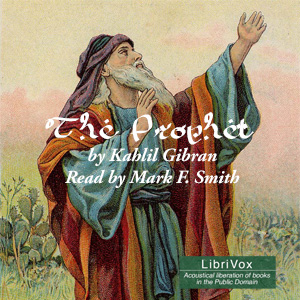
The prophet Al Mustafa, before leaving the city where he has been living twelve years, stops to address the people. They call out for his words of wisdom on many sides of the human condition, and he addresses them in terms of love and care. He has much to offer from his observations of the people, and he illustrates with images they can relate to.
The author, Gibran, was influenced by the Maronites, the Sufis, and the Baha’i. His philosophy, though deist, is primarily aimed at the good within ourselves, and the common-sense ways in which we can unlock it. An illustration from his chapter on Friendship:
“And let your best be for your friend.
If he must know the ebb of your tide, let him know its flood also.
For what is your friend that you should seek him with hours to kill?
Seek him always with hours to live.”
The prophet’s gentle words have inspired their translation into over 108 languages. Listen to them with an open mind. You may find some burdens and frustrations hidden within you eased.
- Summary by Mark
7 episodes
The murder has finally been solved. After 20 years, Humphrey Vargas came with his dog, seemingly from no where, and informed the magistrate of the county that he murdered the popular Mr. Blake. He even told the magistrate the whole story. This book picks up where other books end and shows how this revelation brings about a chain of unexpected events. Knowing who murdered such a popular man does not make things any easier around the county, as memories finally surface, and relationships may change forever. - Summary by Stav Nisser.
53 episodes
Our ethereal man with wings, whom we met in Riallaro, continues his tale about Limanora which is a Utopian Island created as an experiment in Eugenics. Medical and technological advances have led to a central Power Source, computers, and weather control to name a few. - Summary by kirk202
42 episodes

Originally published in serial form in 1879-80, “The Brothers Karamazov” is recognized as one of the very greatest masterpieces of world literature. It is the last and finest novel of Fyodor Dostoyevsky, who died before writing a planned sequel.
The story is organized initially around the efforts of adult sons to deal with their cantankerous and exasperating father. More important, they also have to deal with the problem of how to live in a world where it is difficult to be sure of the truth — whether that be “truth” about others, about oneself, or about deep questions such as faith, doubt, free will, guilt, and responsibility.
Dostoyevsky’s technique underlines the difficulty of attaining sure knowledge. The novel’s psychological and philosophical depth sets the stage for modern novelists such as Joyce, Kafka, and Woolf. “The Brothers Karamazov” has been a favorite book for readers as diverse as Albert Einstein, Sigmund Freud, Joseph Stalin, Vladimir Putin, and Hillary Clinton. - Summary by Bruce Pirie
96 episodes
Esta recopilación se publicó en 1865 bajo el nombre de Obras clásicas y en ella se incluye: El marido engañado de Giovanni Boccaccio (séptimo cuento del séptimo día del Decameron); La tía fingida de Miguel de Cervantes Saavedra (autoría aún hoy discutida) y La casa de locos de amor de Francisco de Quevedo - Summary by Phileas Fogg
5 episodes
Unamuno nos pone frente a frente con una de las pasiones humanas más viles y destructivas: La envidia.
Joaquín y Abel son amigos íntimos desde la infancia y ya desde el instituto Joaquín quiere tener y ser todo lo que representa Abel. Abel es un muchacho popular entre los compañeros, simpático, al que le encanta la pintura y mucho menos los libros. Joaquín por el contrario es aplicado y estudioso, pero no goza del encanto y la simpatía de Abel.
Unamuno hace una magnífica radiografía de esta pasión malsana que se apodera de Joaquín y que desgraciadamente está presente en todas las sociedades. La envidia llevará a Joaquín a la destrucción personal y la de su entorno más próximo, Abel y su propia familia.
En fin, la historia bíblica de Caín y Abel transportada a la época contemporánea con la mano maestra de Miguel de Unamuno. (Montse González)
38 episodes
El país del placer llamada así por la primera traducción en español de esta novela de Edith Wharton publicada por la revista La España Moderna en 1910 (título original en inglés: The House of Mirth) es la segunda novela de Edith Wharton, publicada en 1905. Narra el drama personal de una mujer agraciada en la alta sociedad de Nueva York de inicios del siglo XX. - Summary by Phileas Fogg
29 episodes
Humphrey Scriven is a fine, genial, mercantile man, left widowed to raise three daughters and a son. Two of the daughters marry well although happiness is not enduring. The other defers her marriage, knowing her father disapproves of her choice. The son is a disappointment to his father -- his character is not as generous or kind. However, in time, this son inherits the business, with the exception of a portion left to a trusted clerk, Mr. Hayley. But there is a secret side to Mr. Hayley and maybe he is not quite the right man to guide the novice merchant. The two part ways acrimoniously and the clerk is driven to actions for which his son pays dearly.
40 episodes
Pitou lost his mother when he was small. He was raised by a stern aunt who did not really love him. He starts knowing the world by going to service. How can this man, Pitou the Peasant (as the subtitle of the novel suggests) go on to influence the whole state? How can he go on and take a part in the French revolution? Can his motivation, coming from what he did not have, be enough? - Summary by Stav Nisser
26 episodes
"Mother Earth was an American anarchist journal that described itself as "A Monthly Magazine Devoted to Social Science and Literature". Founded in early 1906 and initially edited by Emma Goldman, an activist in the United States, it published articles by contemporary activists and writers in Europe as well as the US, in addition to essays by historic figures." (Wikipedia) This is Volume 1 of the series. This is the third number of the magazine.
16 episodes
Dans cette compilation de 27 contes parfois tristes, horribles, marrants ou même fantastiques, Guy de Maupassant (1850-1893) montre de nouveau son talent dans l'art d'observer la vie quotidienne des gens et d'en créer des histoires surprenantes. Le contraste entre l'obscurité de la nuit et la clarté du jour y est reflété dans le comportement des hommes, dans leurs émotions, dans leurs actions.
Ce projet rassemble les 21 histoires contenues dans l'édition originale de 1885, les 5 histoires incorporées dans les éditions suivantes et une histoire inédite de l'édition de 1909. - Summary by Sonia
27 episodes

Nami-ko, a young woman of a noble Japanese family, has recently married the naval officer Takeo, the only heir of a friend of her father's. The couple is very happy together and Takeo is doing everything to create the perfect life for his wife, even more so when she contracts tuberculosis. Takeo's mother, however, sees Nami's illness as a threat to the survival of the family line. Egged on by Chijiwa, a spurned lover of Nami's and Takeo's cousin, she uses her son's absence to send Nami back to her family, thus effecting a divorce. Upon his return, Takeo is furious, but, unable to undo the divorce, he goes off to the front line in the war with China. Meanwhile, Nami is getting worse, and her only wish is to be able to see Takeo one more time...
This is the best known novel by Kenjiro (pen-name: Roka) Tokutomi. Written in 1899 as Hototogisu (The Cuckoo), it deals with the life of the upper classes in the early years after the Meiji Restoration, when Japan was torn between ancient traditions and modern Western influences. The novel was translated several times soon after its publication. This translation is by Sakae Shioya and E. F. Edgett from 1904. (Summary by Availle)
28 episodes
The countryside outside of Los Angeles is a paradise on Earth: nature gives bounty on the land, the animals are majestic, the oaks breathe and the natural pools and ponds are all you would want on a summer's day. And if you are a Pennington or an Evans, life is simple and complete. However, every paradise has a serpent. For Rancho Ganado, that comes in the shape of Bootlegging, Drugs and Murder. All the vice of nearby Hollywood manifest themselves in the picturesque landscape, throwing the lives of these families into turmoil. - Summary by Joseph DeNoiaProof-listened by KevinS and linny
37 episodes
In Vino Veritas is one section of Kierkegaard's Stages on Life's Way, originally published in 1845. In a conscious reference to Plato's Symposium, it is determined that each participant must give a speech, and that their topic shall be love. Lee M. Hollander said, "it excels Plato's work in subtlety, richness, and refined humor. To be sure, Kierkegaard has charged his creation with such romantic superabundance of delicate observations and rococo ornament that the whole comes dangerously near being improbable; whereas the older work stands solidly in reality." Some of the speakers in this book are charcters from Kierkegaard's other books. Victor Eremita, Judge William, and Johannes the Seducer were all from Either/Or (1843) and Constantin and the Young Person were from Repetition (1843). (Summary by Soupy)
7 episodes
“No good deed goes Unpunished”, as the saying goes.
A wealthy Egyptian leaves millions of buried treasure on an island and sends the location to the Captain that saved him while fleeing certain death from Napoleon Bonaparte. However the Egyptian does not leave the entire location: only the Latitude. The Longitude will be made known to him in time.
Decades pass before a shifty notary from Alexandria arrives with the necessary Longitude, and now the lust for greed has passed from Captain to Son.
Thus begins the tale of this treasure hunt, taking use from St. Malo, France to the shores of Arabian Coast and beyond. Follow this tale of strangers in strange lands, greedy third parties attempting to get the treasure for themselves, and the patience of the travels being wracked and tested from all ends on the traveling party.
Summary by Joseph DeNoia
32 episodes
Esta historia milenaria cuenta la seducción de una ingenua pastora, Adega, por un peregrino a quien ella identifica con Dios y del que asegura haber quedado embarazada. Quienes la escuchan la tienen por endemoniada, pero ella exhala encendida religiosidad, impregnada de fábulas y visiones, lo que supone el predominio de la imaginación sobre la dura y terrible realidad de la vida en las aldeas gallegas de ese momento. Flor de Santidad es una obra maestra de la novela breve, con todos los elementos lingüísticos y estilísticos que caracterizan la perfección de la escritura de su autor. - Summary by Ditirambo
5 episodes
Anthem is a dystopian fiction novella by Russian-American writer Ayn Rand, written in 1937 and first published in 1938 in the United Kingdom. The story takes place at an unspecified future date when mankind has entered another Dark Age. Technological advancement is now carefully planned and the concept of individuality has been eliminated. A young man known as Equality 7-2521 rebels by doing secret scientific research. When his activity is discovered, he flees into the wilderness with the girl he loves. Together they plan to establish a new society based on rediscovered individualism. - Summary by Wikipedia
12 episodes
Es un cuento breve en siete capítulos. Tropiquillos pertenece al mismo libro donde se publicaron La sombra, Celín, Tropiquillos y Theros en ese mismo orden. Como el mismo autor explica al principio de La sombra, junto con Celín y Theros componen un almanaque, y Tropiquillos representa el otoño. Es una obra de ficción, un sueño, un juguete, como así lo denomina el mismo Galdós, que se considera a sí mismo como un intruso en este género literario. Tropiquillos relata la vuelta a la antigua casa familiar de su protagonista al modo de hijo pródigo, cuando ya no queda otra opción... - Sinopsis por Emilio Herrero
7 episodes

Giovanna and Costantino Ledda are a happily married couple living with their young child in a Sardinian country village close to their extended family. Costantino is wrongly convicted of murdering his wicked uncle and with no way of supporting herself, Giovanna reluctantly divorces him and is driven to marry Brontu Dejas, a wealthy but brutish drunkard who has always lusted after her.
As well as enduring a marriage amounting to slavery, Giovanna is derided by villagers for having two husbands. When Constantino is freed after the real murderer confesses to his crime, he and Giovanna are together again, but this time their relationship is outside the law, and sets both on a path of destruction, at the mercy of religious and social forces they cannot control.
The author, Grazia Deledda, won the Nobel Prize for Literature in 1926, for writings which show passion and sympathy for the people of her native Sardinia, and ‘After the Divorce’ (Dopo il Divorzio) is one of her finest works. - Summary by Tom Denholm
20 episodes
La barraca nos cuenta la historia de Batiste y su familia que llegan a la huerta valenciana a trabajar cultivando unas tierras abandonadas. Eran las tierras del tío Barret, caído en desgracia al no poder pagar el arrendamiento a Don Salvador, dueño de ellas. Toda la huerta se une para que nadie vuelva a ocupar esa parcela.Batiste será odiado por todos sus vecinos. Le harán de tal modo la vida imposible que tendrá que abandonar lo que era su esperanza y el sustento de su mujer e hijos.“ Y todos, con resignación oriental, sentáronse en el ribazo y allí aguardaron el día con la espalda transida de frío, tostados de frente por el brasero que teñía sus rostros con reflejos de sangre……..”(Summary by Montse González )
10 episodes
This is a book of stories by Bernard Capes to entertain you if you should find yourself in a cozy chair by the fireplace during the short dark days of winter. - Summary by A. Gramour
14 episodes
Los auténticos cuentos de terror cuentan con algo más que un misterioso asesino, unos huesos ensangrentados o unos espectros agitando sus cadenas según la vieja regla. Pues debe respirarse en ellos una determinada atmósfera de expectación e inexplicable temor ante lo ignoto y el más allá. Deben estar presentes unas fuerzas desconocidas, la maligna y específica suspensión o la derrota de las leyes desde siempre vigentes de la Naturaleza, que representan nuestra única salvaguardia contra los asaltos del caos y los demonios del espacio insondable. Summary by Phileasfogg
18 episodes





